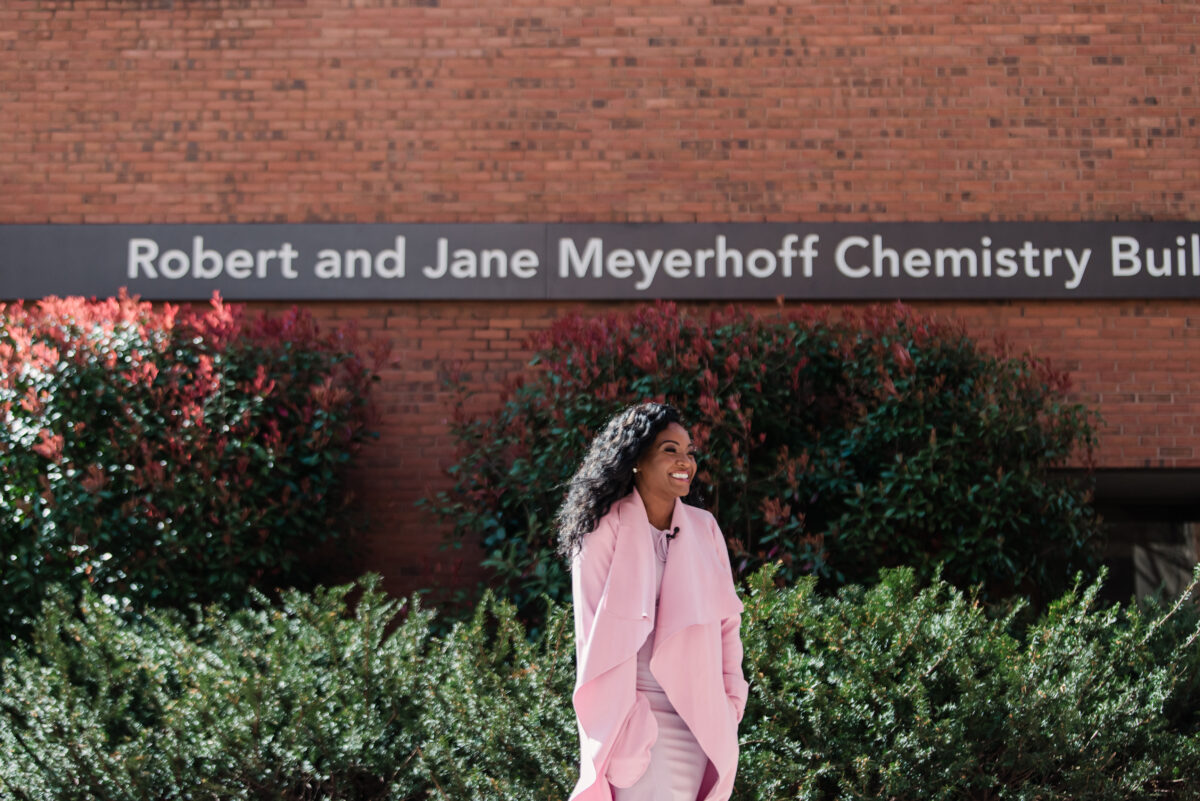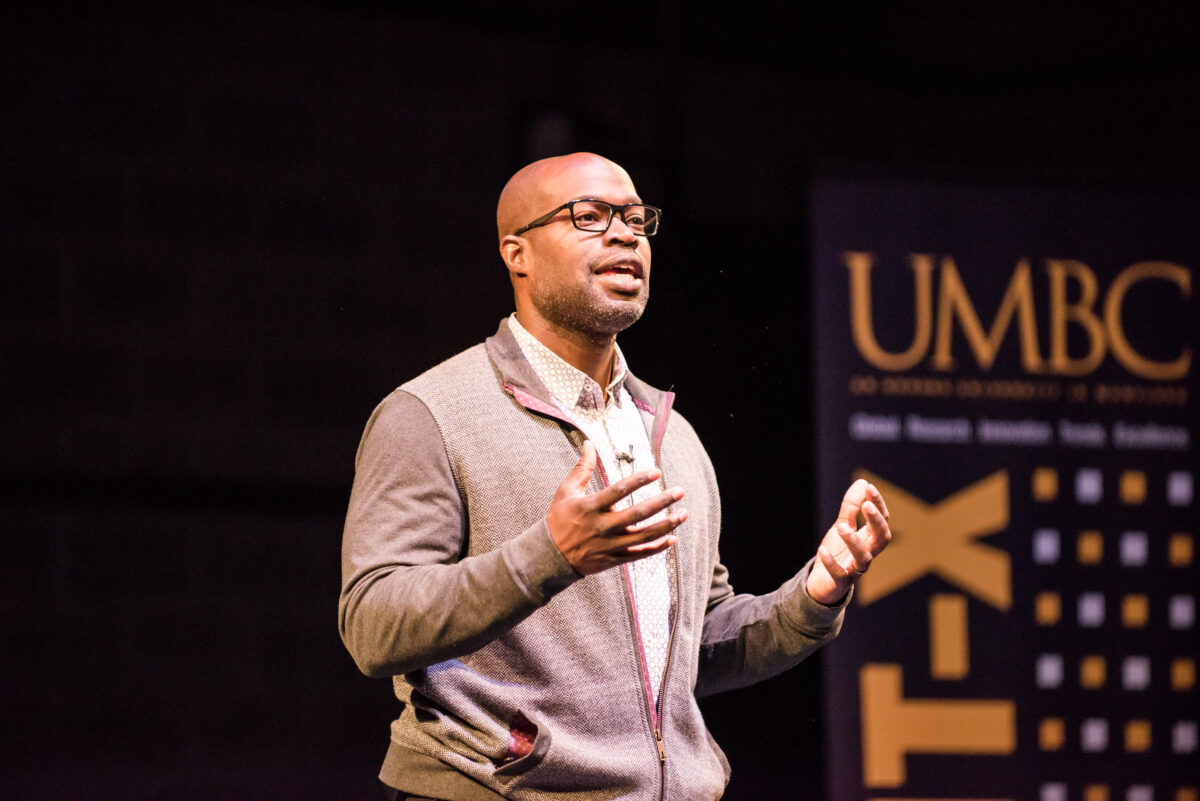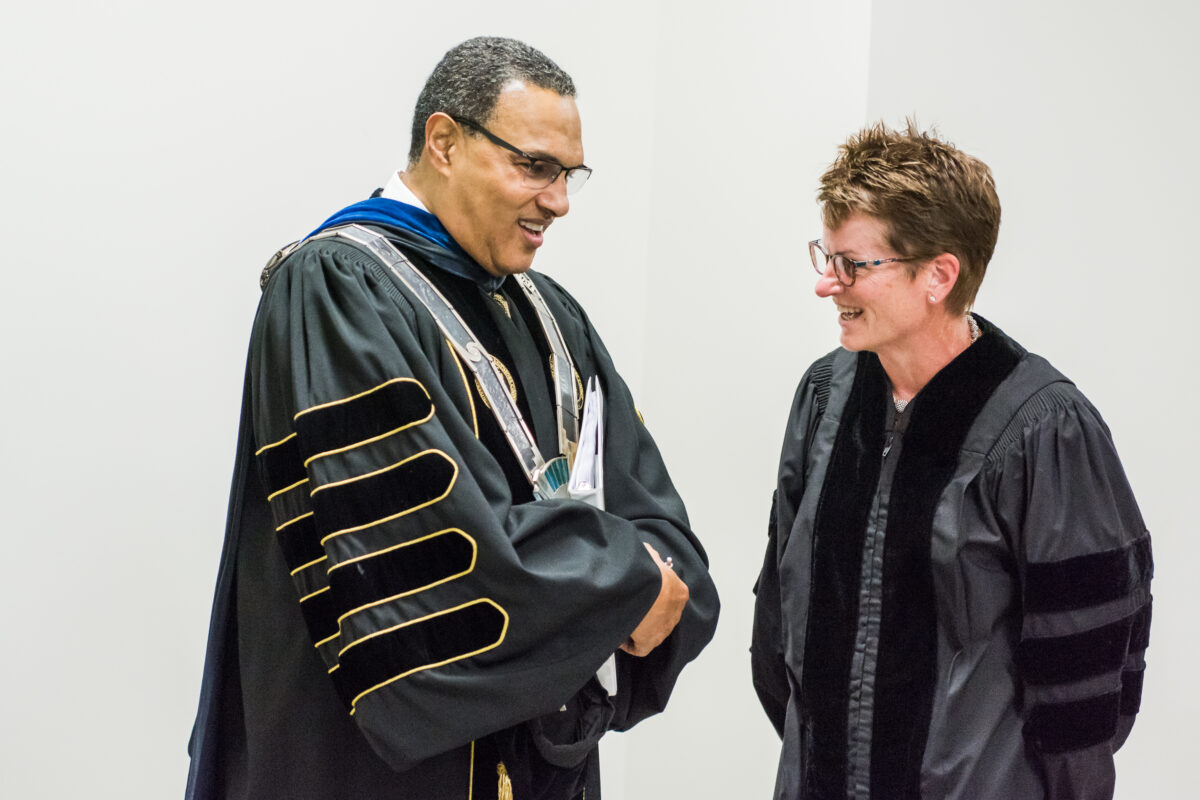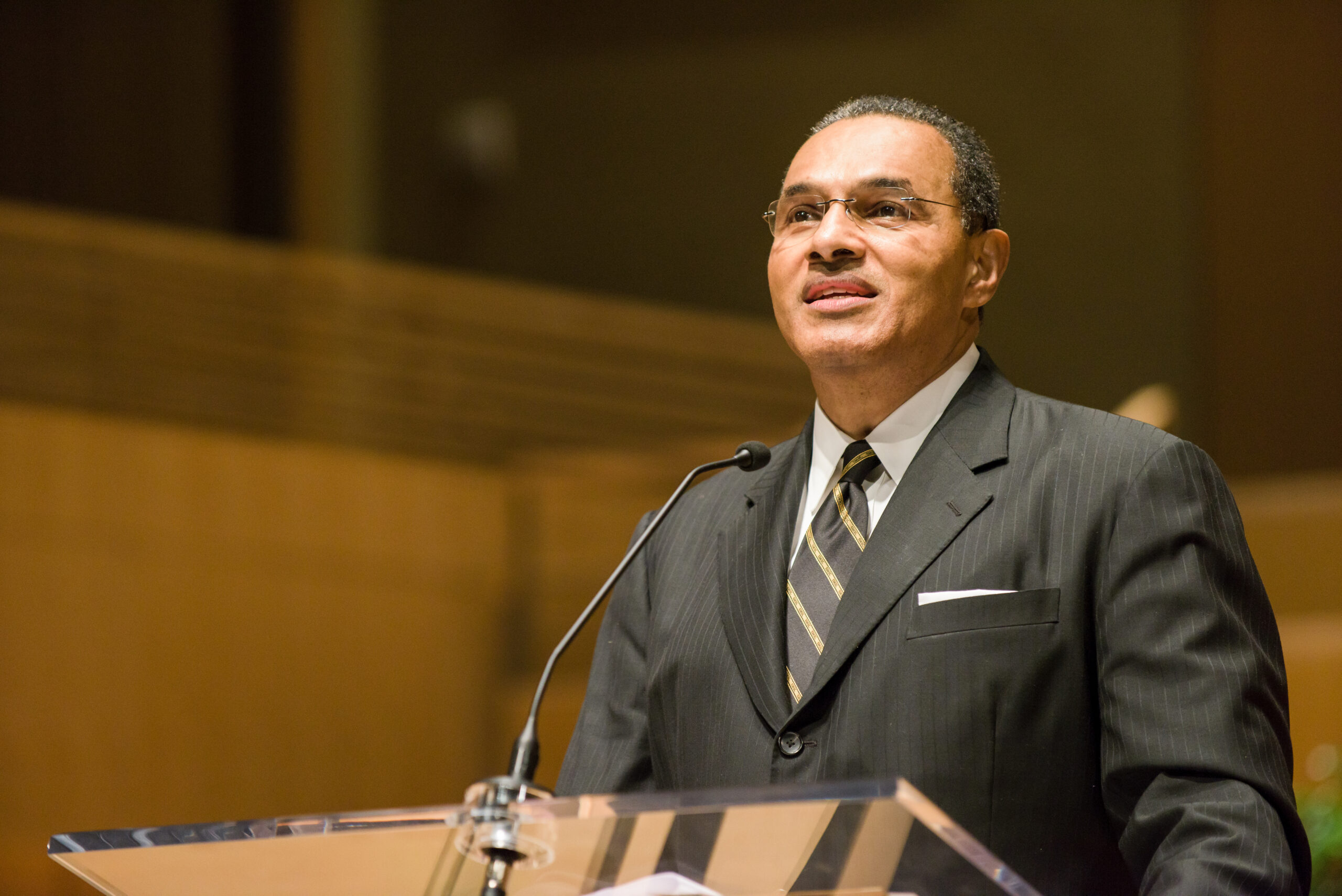Today, the Howard Hughes Medical Institute (HHMI) launched the Freeman Hrabowski Scholars Program to help build a scientific workforce that more fully reflects our increasingly diverse country. The $1.5 billion program honors UMBC President Freeman A. Hrabowski, III for his decades of leadership in growing and diversifying the pipeline of Ph.D.-level researchers, most prominently through UMBC’s Meyerhoff Scholars Program.
Alumni leading the way
UMBC is now the nation’s #1 producer of Black bachelor’s degree recipients who go on to earn a Ph.D. in the natural sciences and engineering, and this program builds on that legacy.
Meyerhoff Scholars alumni have earned 385 Ph.D.s, 155 medical degrees, and more than 300 master’s degrees (as of April 2022). More than 370 additional Meyerhoff alumni are currently enrolled in graduate and professional school. Students who became Meyerhoff Scholars are more than five times more likely to have completed or be currently enrolled in a STEM Ph.D. program than students who were accepted to the program but declined. Several universities across the country, including Penn State and UNC Chapel Hill, have successfully replicated the program, with support from HHMI and others.
Meyerhoff alumni include such rising stars as Kafui Dzirasa ’01, M8, chemical engineering, associate professor at Duke and an HHMI Investigator, and Kizzmekia Corbett ‘08, M16, biological sciences and sociology, lead of the NIH team that developed the technology for the mRNA COVID-19 vaccines, and now assistant professor at Harvard.

As it has gained momentum, the Meyerhoff program has had an important ripple effect. Many Meyerhoff alumni today are cultivating diverse, inclusive research groups of their own, where they support undergraduate and graduate students on their way to careers in STEM.
HHMI has designed the new Freeman Hrabowski Scholars Program to ensure that early career faculty have resources and support to become both leaders in their research fields and effective leaders and mentors of trainees from racial and ethnic backgrounds currently underrepresented in U.S. science. These are just the sort of researchers who may have come up through a Meyerhoff alumni-led laboratory, and will now be in a strong position to build their own research groups.

Changing the face of science
With the Freeman Hrabowski Scholars Program, HHMI expects to hire and support up to 150 early career faculty over the next 20 years. The program will select 30 Scholars every other year for the next decade. Each Scholar will be appointed to a five-year term, renewable once with evaluation. Scholars will receive up to $8.6 million over 10 years, including full salary, benefits, a research budget, and scientific equipment.
In addition, Scholars will participate in professional development to advance their leadership and mentorship skills. They’ll also be included in HHMI’s community of scientists, educators, and students for scientific meetings, networking, and other opportunities.
“For academic science to thrive in an increasingly diverse world, we need to attract and support scientists from a wide variety of racial and ethnic backgrounds,” says HHMI President Erin O’Shea. “Early career faculty play a key role because they are the leaders of tomorrow. We’re excited to support talented early career scientists dedicated to a model of excellence in science that combines innovative scientific research and intentional, inclusive development of postdocs, students, and other lab members.”

It’s especially meaningful that HHMI, the largest private funder of biomedical research in the nation, has taken up this effort. President Hrabowski was moved to learn that HHMI wanted to name their latest and biggest endeavor to diversify the scientific workforce in honor of his decades of service.
“We should all be encouraged by HHMI’s commitment to changing the face of science in America,” Hrabowski says. “This initiative shows what is possible when an institution is guided by its values and by evidence of what works. I am deeply honored to be connected with HHMI and with this new program.”
To learn more, see additional coverage from HHMI and in The Washington Post, Baltimore Sun, Science, WYPR, Inside Higher Ed, and The Chronicle of Higher Education.
Tags: diversityandinclusion, Hrabowski, majoraward, MeyerhoffScholars

